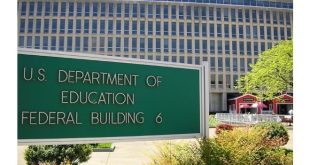The New York Times published a series of articles last year that arguing that America’s true founding was in 1619, when the first slaves arrived, not with the signing of the Declaration of Independence in 1776. The authors claim that the American Revolution was fought to preserve slavery.
Critics have called the project’s research flawed. Robert Woodson and others, including Dr. Carol Swain, held a press conference earlier this year to announce the “1776 Project,” which offers an accurate portrayal of America’s slavery past. Woodson called the 1619 Project anti-America propaganda.
Slavery existed across the globe, but it was the West, through its democratic institutions, that pushed the idea of abolishing slavery.
Despite the 1619 Project’s flawed research, Nikole Hannah-Jones, the project’s so-called architect, won the Pulitzer Prize. Now government schools are adding this flawed research to the curricula. The New York Post Editorial Board called it “educational malpractice.”
The Heritage Foundation recently conducted a survey about adding the project to government school curricula. An excerpt:
Supporters of the 1619 Project continue to incorporate it into school civics [curricula] across the country, even after The New York Times issued a major correction to the project’s introductory essay by Nikole Hannah-Jones, its creator.
Pulitzer Prize-winning historians “have said that the project has weak scholarly support,” Jonathan Butcher, senior policy analyst at The Heritage Foundation’s Center for Education Policy, said at a July 9 webinar event on civics education and the 1619 Project.
A survey of 1,567 people, 566 of whom are school board members, revealed the divided opinions about the project.
When asked whether 1776 should continue to be taught as the year of the country’s founding, rather than 1619, 59.1% of parents and 72.6% of school board members answered the year the Declaration of Independence was signed should remain as America’s founding date.
Almost 50% of parents and 70% of school board members said they do not want their children’s school to use “instructional material based on the idea that slavery is the ‘center of our national narrative.’”
According to Heritage, a number of factors account for differences between parents’ and school board members’ responses. The age of the latter skewed slightly older, they had higher educational and income levels on average, and a little over half of them are from the south, which leans more politically conservative.
Photo credit: National Park Service
 CURE News and Clergy Blog News and Commentary for Christians
CURE News and Clergy Blog News and Commentary for Christians



